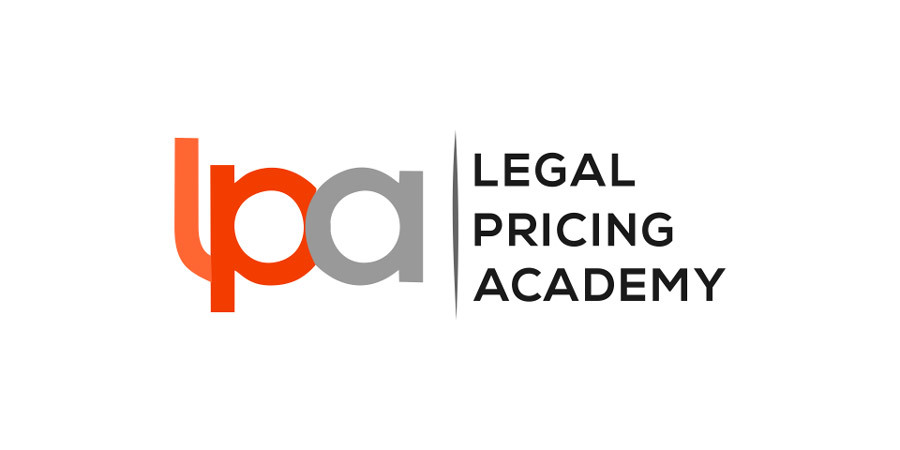More and more law firms have acquired additional pricing and price negotiation skills or brought in external pricing professionals to participate in the negotiation process. They have also become considerably more rigorous about whether to throw their hat in the ring...
This is a chapter we were commissioned to provide for a new publication, The Legal Procurement Handbook, edited by US-based Dr Silvia Hodges Silverstein, available from Amazon, and republished with permission.
More and more law firms have acquired additional pricing and price negotiation skills or brought in external pricing professionals to participate in the negotiation process.
They have also become considerably more rigorous about whether to throw their hat in the ring on new client 'opportunities'. Triaging of invitations to tender or opportunities to pitch for work is critiqued more robustly and sys-tematically than before.
This is just as well because the direct and indirect cost of the firm's participation in pitches and tenders can be astronomical in the aggregate.
To create something approximating a level playing field, we have suggestions for both law firms and legal procurement:
For law firms
The first thing law firms need to understand is that pricing involves a negotiation, and negotiation is a skill. If you are no good at it, you are going to be beaten into submission by your better prepared, more confident, more skilled and better resourced opponent every time.
Most lawyers are good negotiators, except when it comes to their own fee where they often struggle. Those who have been prepared to invest in this area have experienced greater success.
[Caveat: acquiring better price negotiation skills is of limited value unless it is coupled with a much deeper understanding of pricing as a discipline and price customisation capability at partner level, but that is a conversation for another day].
Still, many lawyers find themselves powerless to deal with procurement's standard playbook, often consisting of one or more (sometimes all) of the following:
- Representations that all bids will be considered when the successful bidder has already been decided
- Indiscriminate, arbitrary and capricious inclusion of lop-sided contract terms to see which ones stick
- Representing that an agreement is concluded only to reopen negotiations in an effort to extract even better terms
- “Nibbling," resulting in scope creep for which there is a flat refusal to pay
- Changing the terms and deadlines of a price negotiation to unbalance the other side
- Refusing to provide adequate detail upon which to base an informed bid
- "My way or the highway" statements intended to convey indifference as to whether you or another firm gets the work.
Firms also often have to deal with various client internal dynamics: internal procurement tends to have different drivers and motivations to independent procurement companies and in-house legal teams and GCs are different again.
When receiving an invitation to tender, firms are advised to triage and qualify those bids and pitches in which they should invest resources:
- What is the process for evaluating firms and their proposals?
- What are the names and positions of everyone involved in the process?
- Who is the ultimate decision maker and will we have any opportunity to interact with them or is someone else running interference?
- How many bidders are being considered and who are they?
- How many firms does the client wish to end up with?
- What are the selection and evaluation criteria?
- When and how do we get an opportunity to understand how we can add more value to the rela-tionship?
- If you have no existing relationship with the client, why are you being asked to bid?
Beware of bid information memos where the in-house team or procurement flatly refuses to provide answers to even the most reasonable questions. That is disingenuous and quite possibly intended to deceive and confuse. It often signals another agenda. Our advice? Run a mile and let someone else 'win' the work.
Once you have a good understanding of what you are up against, it is time to get to work on preparing your strategy so that the negotiations are just that, a negotiation, and not an unconditional surrender.
For procurement
One of your key responsibilities is to procure legal services in a way that delivers the best value and the best outcomes for your employer. No one can really take serious issue with this. However, the way in which many execute this objective leaves something to be desired. The following suggestions and comments are intended to be constructive rather than critical. I don't pretend that the list is exhaustive but I would characterize these items as individually and collectively a significant impediment to the advancement of the relationship and the kind of outcomes that you and your organization are probably looking for:
Engage & collaborate:
Coming at the task from the perspective that this is a zero-sum game will rarely produce optimal results for anyone. The most innovative, enduring and mutually fruitful law firm/client relationships are ones that are characterized by a high degree of mutual trust, empathy, dialogue, collaboration and a general 'let's-make-this-work' attitude.
Stop running interference:
The legal category is a relationship business. You may feel that you are exerting your influence, control and importance by running interference between the primary relationship manager in the law firm and the project sponsor on your side of the equation, but all you are doing is presenting yourself as part of the problem, not part of the solution.
By all means, participate in the process and act as a facilitator as much as an advocate for your organization.
Allow time:
If you present firms with completely unrealistic timeframes within which to respond, the quality of what you are going to receive in return will be commensurate. If you want a well thought-through, considered and interesting response, then you have to allow a reasonable amount of time for firms to produce these.
If you are either disorganized and ask for it at the last minute or your belated request is cynically calculated to wrong-foot law firms by giving them little time to think about it, you are going to receive rubbish - little more than a rate card with glossy cut and pasted hyperbole and rhetoric about the firm.
Avoid conflicts of interest:
Unfortunately, some procurement people confuse and conflate their personal interests with those of the organisation they work for. This can manifest itself in such bizarre behavior as issuing an RFP that asks what the discount on headline hourly rates will be without actually asking what the hourly rates are.
That sends a very clear signal that you really don't care about procuring legal services in a way that delivers the best value and the best outcomes for your organization. It is all about you presenting a 'scalp' to your paymasters and does nothing to assist the cause.
And while on the subject of conflicts of interest, procurement people often bemoan the fact that the time billing regime incentivises inefficiency. Quite true, but we are far from convinced that procurement remuneration structures based on savings alone is any different, or that such incentives will do anything other than ultimately expose the organisation to undue risk as a result of poor 'cheap' legal advice.
Provide as much information as possible:
The quality of what you get from firms and the specificity of particular proposals is in direct proportion to the amount of information that you provide at the outset. While some procurement professionals go to considerable lengths to do this, others don't. There is no doubt that putting together a quality RFP takes time and effort. However, that time and effort will be rewarded in the quality of the proposals you receive.
Don't use firms as stalking horses:
Firms are becoming increasingly sophisticated in their market research and triaging processes. Like the boy who cried 'Wolf', you will be found out. The result will be an ever-diminishing pool of quality law firms who elect not to be bothered dealing with you or responding to your invitations because you can't be trusted.
Be responsible:
You may be well aware of the fact that you are viewed as a trophy client. That does not mean it is either necessary or desirable to take advantage of everyone. It is not good for business relationships in the long run and it is not even good for business.
Don't ask for pricing innovation unless you mean it:
Generic and banal requests for "anything else you think we might be interested in" or "your proposals for alternative billing arrangements" have become commonplace in RFPs. It takes a lot of time, thought, care and skill for a law firm to put to-gether really interesting and innovative pricing proposals.
It is a complete waste of their time, resources and money to do so unless you are going to take such proposals seriously and you genuinely have the time and ability to evaluate them on their merits. Otherwise, save yourself and the firm the time and bother.
Be honest about evaluation criteria:
Too often, procurement informs bidders what the evaluation criteria will be and then departs from it. It is often hard to figure out whether this is the result of inability or laziness around the evaluation or whether it was all part of a predetermined plan of deception. Either way, it is unprofessional and shabby, and does not serve your organisation well.
Put your own house in order:
Law firm clients are often a significant reason for costs being higher than they might be. This can be the result of the organization's own inefficiencies, convoluted and ineffective communication channels, a lack of centralized contact with the law firm resulting in con-flicting or confused instructions, and a propensity to get the law firm involved at the last minute (saves money – no it doesn't!) which means that things are often unnecessarily conducted in a blind panic. It is worth taking time to have a look at the mechanics of the way that you engage with your firms.
Invest in professional development:
Chances are that you don't know as much about the pricing of legal services as you think you do. Pricing is a complex amalgam of traditional disciplines including cost accounting, statistical analysis, micro economics, behavioral economics, psychology, project management to name a few. The last few years have seen the elevation in status of pricing as a discipline, which, although 'old hat' in many industries, has only recently begun to be seriously embraced in the professions. You will need to invest heavily in constant professional development.

